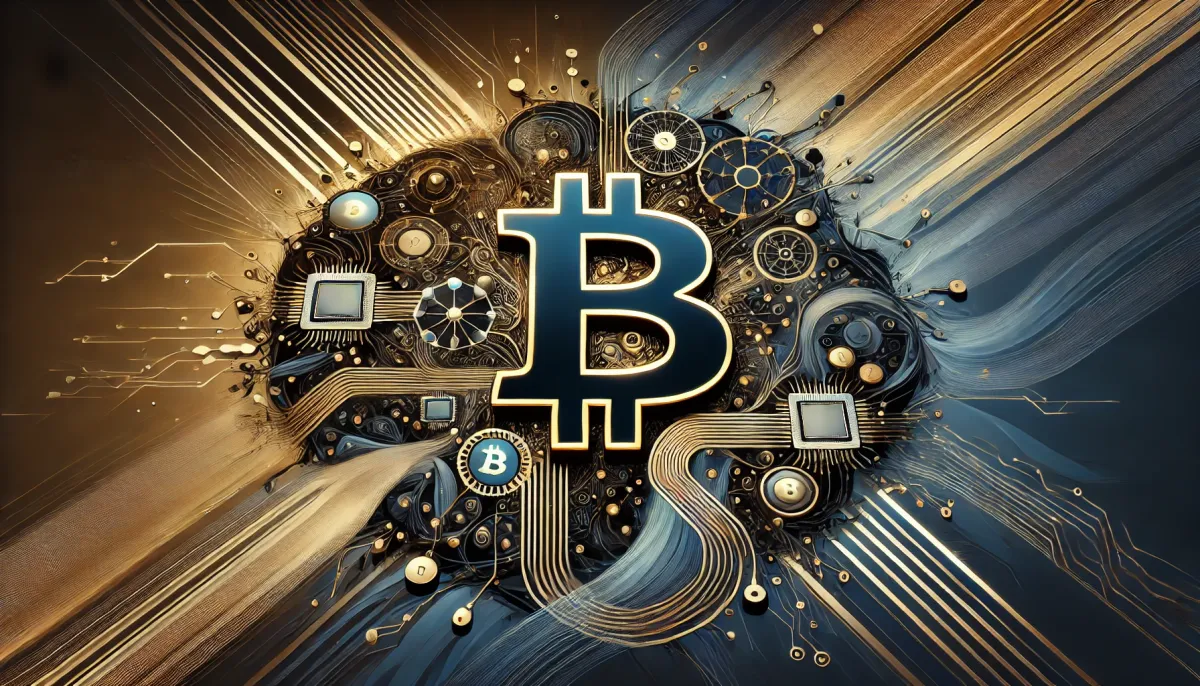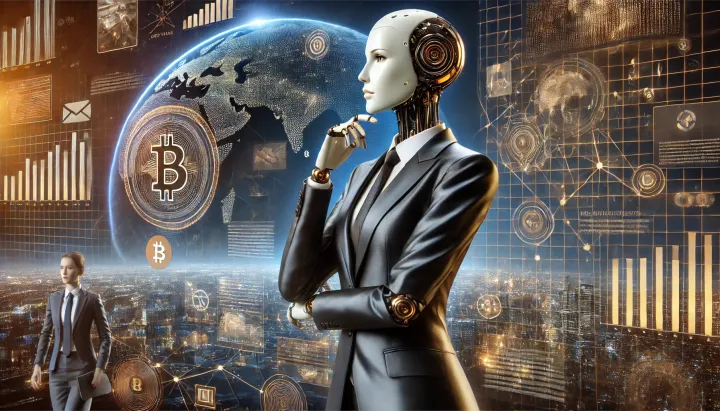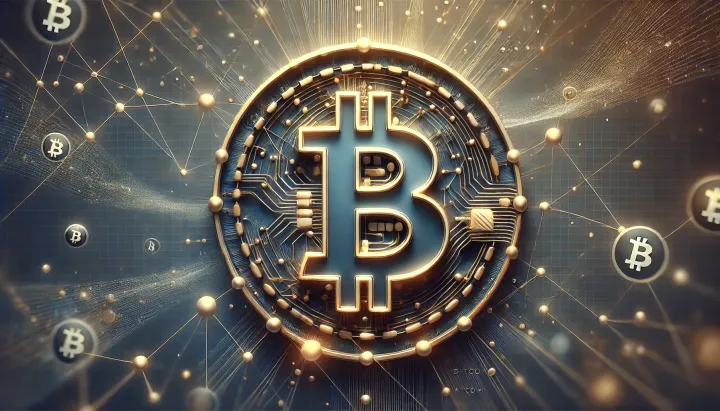Strategic Wealth Building in the Exponential Age
The October 16, 2024 episode of the Real Vision podcast featured Raoul Pal exploring the exponential technological changes he believes will reshape industries, economies, and human experiences over the next six years.

Briefing Notes
My 'briefing notes' summarize the content of podcast episodes; they do not reflect my own views. If you have comments about this briefing note, please leave a comment below (requires signing up for a free blog subscription). Note that some of the podcast episodes I summarize may be sponsored: don't trust, verify, if the information you are looking for is to be used for decision-making.
Summary
The October 16, 2024 episode of the Real Vision podcast featured Raoul Pal, who explores the critical intersection of AI, blockchain, and robotics in reshaping industries and financial markets. He argues that a six-year window exists for individuals and businesses to capitalize on these exponential technologies before AGI-driven changes fundamentally alter the business landscape. Pal highlights the growing role of AI in productivity, the exponential growth of solar energy, and the implications for markets, investors, and industries.
Take-Home Messages
- Exponential Technology's Role: AI, blockchain, and robotics will drive unprecedented technological and financial shifts—adaptation is key.
- Six-Year Wealth Window: Investors and businesses must leverage the current window of opportunity before AGI transforms business models.
- AI-Driven Productivity: Tools like ChatGPT will revolutionize how individuals and businesses approach tasks, boosting productivity and decision-making.
- Solar Energy’s Rapid Expansion: Solar energy is scaling faster than any other power source, presenting critical investment opportunities.
- Prepare for Disruption: Automation and decentralization will disrupt traditional industries, forcing businesses to innovate or be left behind.
Overview
In this October 16, 2024 episode of the Real Vision podcast, Raoul Pal delves into the critical changes coming in the next six years, driven by the convergence of AI, blockchain, and robotics. He emphasizes that these exponential technologies are reshaping industries and financial markets at an unprecedented pace. According to Pal, the world is transitioning through a "macro fall," during which liquidity from central banks presents short-term opportunities for investors. However, beyond this window, the adoption of AGI will disrupt business models, creating a future of uncertainty.
A key theme is the importance of AI tools like ChatGPT and Google’s Notebook LLM, which are transforming productivity by allowing users to automate complex tasks and interact with vast amounts of data. Pal encourages investors and businesses to incorporate these tools into their strategies to stay competitive.
Pal also highlights the rapid growth of solar energy as a dominant force in the global energy market (something validated by today's - October 16 - release of the annual IEA World Energy Outlook). He argues that declining costs and improving battery technology make solar the fastest-growing energy source, displacing traditional fossil fuels and nuclear energy. Investors must recognize this shift to capture long-term growth opportunities.
Finally, Pal warns that those who remain attached to legacy systems and outdated business models will struggle to survive in this new technological age. Businesses must embrace exponential technologies and prepare for the disruption of AI-driven markets and job automation to avoid being left behind.
Stakeholder Perspectives
- Investors: Should recognize the short-term opportunities presented by liquidity in financial markets but also prepare for long-term disruption driven by AGI and exponential technologies.
- Policymakers: Need to develop regulatory frameworks that address the risks of AI-driven markets and automation while fostering innovation in renewable energy and decentralized systems.
- Businesses: Must integrate AI tools and prepare for job automation to remain competitive. Those in industries reliant on fossil fuels or manual labor face the greatest risks.
- Workers: In sectors vulnerable to automation, such as transportation and manual labor, need to reskill for emerging industries driven by AI and renewable energy.
Implications
The convergence of AI, blockchain, and robotics will create vast opportunities for those who understand these trends early. For policymakers, the rapid advancement of AI-driven markets and decentralized systems requires new regulations to safeguard market integrity and protect workers from job displacement. Investors who can leverage the current liquidity in markets, along with long-term growth in solar energy and AI, will have the greatest potential for success.
On the other hand, those attached to legacy systems or unprepared for job automation and market disruption will face significant challenges. As AI takes on more sophisticated roles, including decision-making and productivity tasks, businesses must adapt or risk becoming obsolete. Solar energy's rapid growth, paired with advancements in energy storage, will dominate future energy markets, offering both opportunities and risks for stakeholders.
Future Outlook
The next six years will be marked by rapid technological disruption, particularly in AI, blockchain, and robotics. As AGI becomes more widely adopted, business models will change, and the global economy will be transformed. Investors and businesses that fail to anticipate these changes will be left behind, while those who embrace these advancements will thrive.
Policymakers and business leaders must prepare for the widespread impact of automation, which will reshape industries and potentially exacerbate economic inequality. Renewable energy, particularly solar, will continue to grow, offering a critical opportunity for stakeholders to invest in a cleaner, more efficient energy future.
Information Gaps
- How will the convergence of AI, robotics, and blockchain reshape the job market over the next decade? This question is crucial for understanding the societal impacts of these technologies. As job markets are disrupted, new skills will be required, and industries must adapt accordingly.
- What advancements in energy storage are necessary to fully capitalize on the potential of solar energy? The exponential growth of solar energy requires parallel advancements in battery storage technology. Addressing this will ensure the reliability and scalability of renewable energy sources.
- What regulatory challenges arise from the increasing use of AI in financial markets? As AI transforms market operations, regulators need to address algorithmic biases, market manipulation, and systemic risks. Clear regulations will protect market integrity while encouraging innovation.
- How can societies ensure equitable access to exponential technologies, such as AI and robotics, to mitigate the risks of widening inequality? Ensuring that these technologies are accessible across socioeconomic groups is essential for preventing economic polarization as AI and automation take over many jobs.
- What role will blockchain and decentralized systems play in the future of governance and financial institutions? Blockchain’s disruptive potential in governance and finance requires deep exploration to understand how it can be integrated into existing structures while allowing for innovation.
Broader Implications for Bitcoin
Bitcoin’s Role in the Exponential Age
Exponential technologies like AI and robotics are set to transform industries. Bitcoin, as a decentralized digital currency, will play a crucial role in this shift by offering a stable, transparent, and decentralized financial system amid these disruptions. As businesses and individuals adopt AI and decentralized systems, Bitcoin will increasingly serve as a store of value and transactional medium in this rapidly evolving landscape, especially for those seeking alternatives to traditional financial systems.
Bitcoin and AI-Driven Markets
The increasing reliance on AI in financial markets will amplify Bitcoin’s role as a non-correlated asset in a volatile, AI-driven financial system. AI tools could further enhance Bitcoin trading strategies, allowing more precise predictions and risk assessments. As traditional assets become more entwined with algorithmic trading, Bitcoin’s decentralized nature may offer a hedge against the systemic risks posed by AI's dominance in global markets.
Bitcoin and Energy Innovations
As solar energy scales exponentially, Bitcoin mining could benefit from these advancements, particularly in regions with abundant solar resources. Bitcoin mining operations, which rely on energy efficiency, stand to gain from cheaper and more reliable solar power, aligning with Bitcoin’s push towards sustainable mining practices. This combination could accelerate the transition to a greener Bitcoin network, enhancing Bitcoin’s reputation as an eco-friendly financial system.
Bitcoin and Job Automation
As robotics and AI automate jobs, Bitcoin could emerge as a solution for people displaced by automation, particularly through decentralized finance (DeFi) platforms. Individuals may turn to Bitcoin and DeFi to gain financial independence outside of traditional employment structures. This could lead to an increased adoption of Bitcoin as a primary means of saving, investing, and transacting, reshaping the economic fabric in the face of technological unemployment.
Bitcoin in Decentralized Systems
Blockchain technology, including Bitcoin, will play a pivotal role in the future of decentralized governance and finance, as discussed in the podcast. With the rise of AI, robotics, and decentralized systems, Bitcoin will underpin many of these innovations by offering a secure and transparent financial infrastructure. As decentralized autonomous organizations (DAOs) gain traction, Bitcoin’s position as the leading digital asset will solidify its role in shaping decentralized governance models.



Comments ()